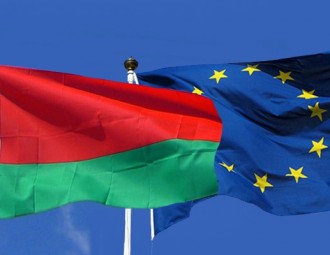Ulad Vialichka: Civil society wants to take part in relaunch of the EU-Belarus relations

The problem is that the Belarusan authorities should make certain steps for the sake of National Dialog.
The Steering Committee of the Eastern Partnership Civil Society Forum (EaP CSF) made a statement where it calls on the Belarusan authorities to initiate talks with representatives of the Belarusan National Platform of the EaP CSF (BNP) on the establishment of a Belarusan Council of National Dialog.
Though the statement is directly addressed to the Belarusan authorities, naturally, the EaP CSF indirectly appeals to the European structures, which could actualize the dialog in the format “Belarusan authorities – the European Union – civil society”.
Ulad Vialichka, the co-chair of the Steering Committee, told about the core of the statement and the expected reaction in the interview with the “EuroBelarus” Information Service.
- In the light o the thaw between the official Minsk and the EU you call upon the Belarusan authorities to start negotiations with the Belarusan civil society. I.e. you offer Lukashenka, whose election to the position of the President isn’t recognized as complying with the international standards by the OSCE, to hear the civil society, which he has been ignoring and pressurizing for years now?
- We are in the situation of resetting the Belarus-EU relations, whether we like it or not. Though Europe takes a very principled stand when it comes to the issues of democracy and human rights in Belarus, we need to admit that today the situation is moving towards the relaunch of the bilateral contacts. Belarusan civil society wants to take part in this “relaunch”, voice its agenda, and put forward ideas for improving the relations, so we should find the entry points in this process. Even if there are no real changes in the behavior of the Belarusan authorities and the EU, we still should be looking for opportunities to solve problems at the negotiating table.
- What are the chances that the authorities will hear you? You are well aware that they are not interested in “reaching an acceptable level of understanding between the authorities and independent actors in Belarusan society.”
- The problem is not about hearing; our goal is to make the authorities take certain steps for the sake of National Dialog that we have been lacking for more than 20 years.
Our statement has a broader circle of addressees: these are, of course, the Belarusan authorities, but also the EU institutes. The statement is indirectly addressed to the representatives of the European Parliament, European Commission, and EU representative office in Minsk – for them our appeal should be the reason to raise the issue of dialog with the civil society in the format “Belarusan authorities – the European Union – independent part of the society”.
- How do you see National Dialog?
- National Dialog is an attempt to honestly discuss issues, which can be very painful, but impossible to ignore; there is no agreement on these issues; however, it’s impossible to move further without resolving them. National Dialog in my imagination is a conversation between different parties: the authorities, the civil society, and cultural authorities. Today we see quite a lot of groups that declare their dissatisfaction with the situation in this or that way: entrepreneurs, students, human rights defendants, journalists… First of all, National Dialog is a communicative process, not structures. Thus, I understand National Dialog as exchange of opinions of different actors about national interests, their priority, and opportunity to act together, not against each other when realizing these interests.
- In the statement the Steering Committee of the Eastern Partnership Civil Society Forum marks that the establishment of a Belarusan Council of National Dialog would allow the authorities to develop a plan of reforms ahead of parliamentary elections in the autumn of 2016. But does the official Minsk need reforms? As even the threat not to get a vitally important IMF loan hasn’t made the authorities make real changes in the system.
- Today we see that the Belarusan authorities have divided in two sides with respect to reforms. We hear clear statements about the uselessness of reforms – basically, these words imply the fear to lose control over the situation, certain conservatism of thinking, and other factors, which stop the country’s development towards reforms. On the other hand, we hear and see contradicting statements and publications (for example, those by Kiryl Rudy about the necessity of economic reforms); it think that this class of officials is quite large. People give professional assessment of the situation, understanding that without certain steps that reform this or that sphere, we won’t be able to talk about the future, but will be patching holes all the time instead.
I wouldn’t be considering Belarusan authorities as something consolidated when it comes to reforms. Some officials say that reforms are needed and are inevitable, whatever the President says; others are ready to follow the line announced by Lukashenka. Clearly, National Dialog is not the solution to the issue, but only one of the instruments.
-
03.01
-
07.10
-
22.09
-
17.08
-
12.08
-
30.09



























